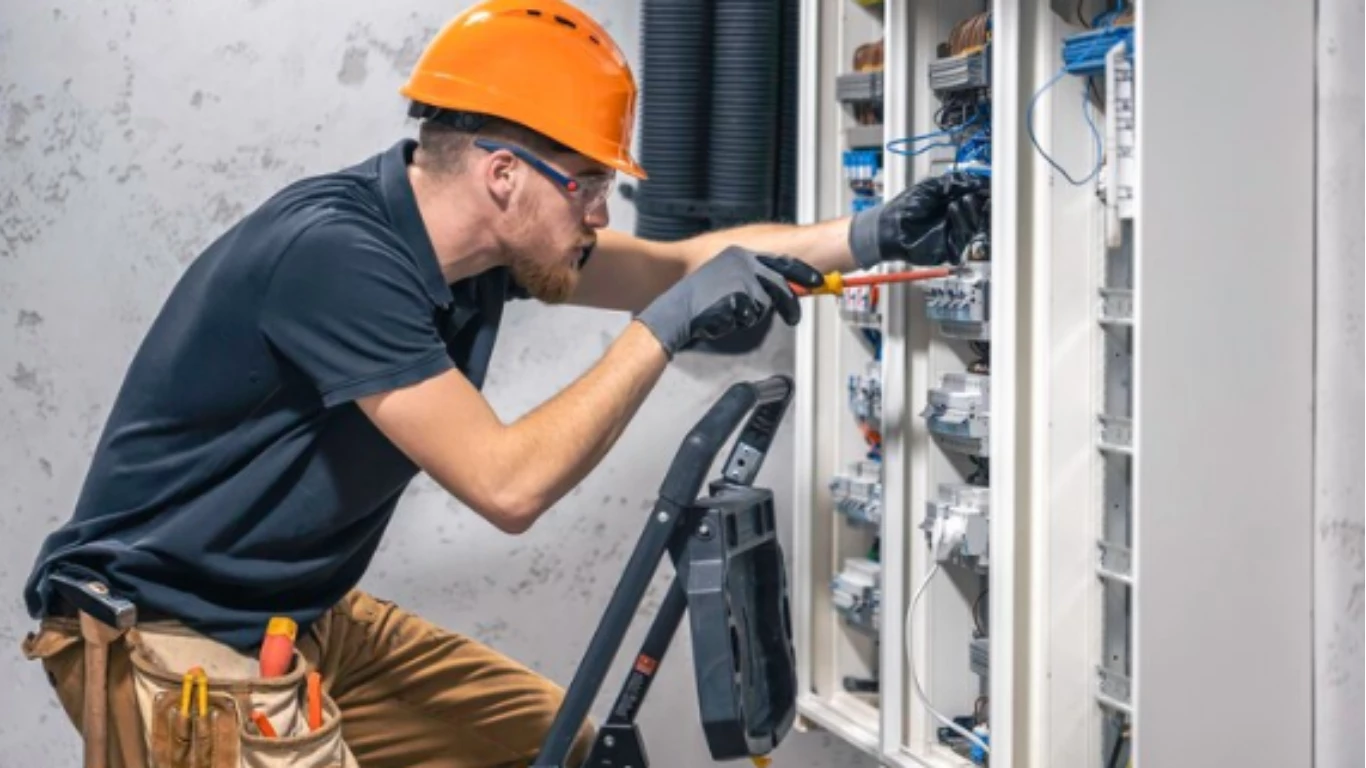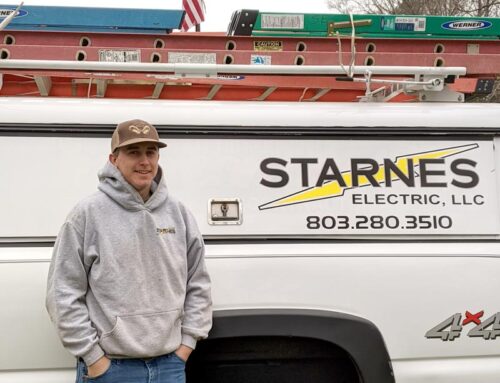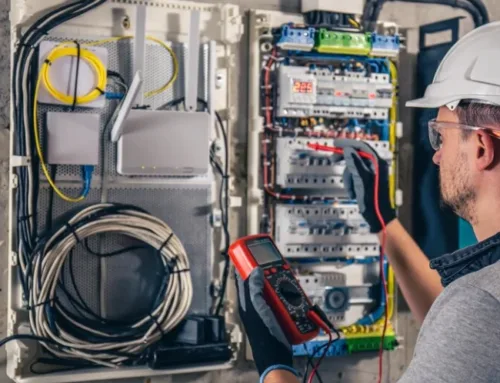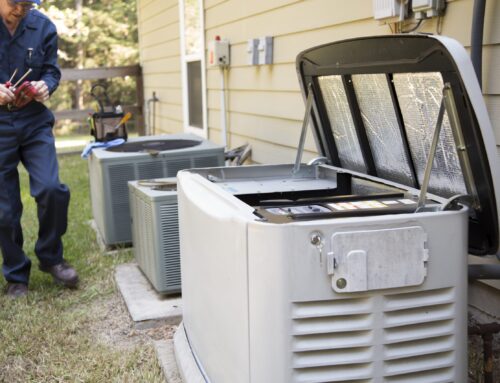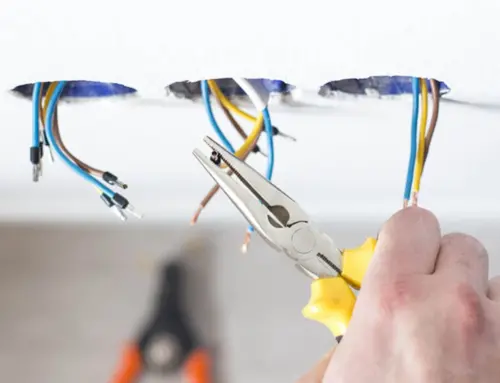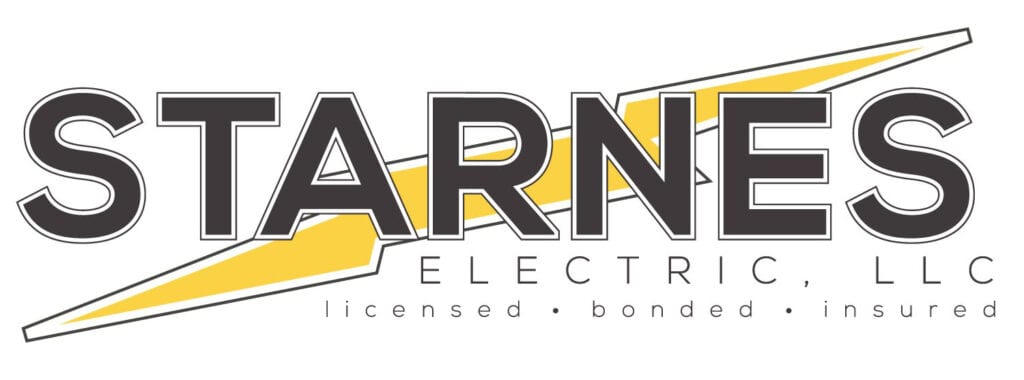Power outages can be a significant disruptor for businesses, leading to operational downtimes, financial losses, and customer dissatisfaction. One effective solution to mitigate these risks is the installation of a backup generator. Ensuring business continuity during unexpected power failures, a generator serves as a vital component in a company’s emergency preparedness plan.
How Does Generator Installation Support Business Operations During Power Outages?
When the power grid fails, having a backup generator ensures that critical business operations continue seamlessly. This uninterrupted power supply is essential for keeping key systems operational, including servers, security systems, communication networks, and other vital infrastructure. Here’s how generator installation supports business operations during power outages:
- Ensures Operational Continuity
- Critical Systems: Servers and communication networks remain functional, preventing data loss and maintaining connectivity.
- Security Systems: Alarms and surveillance systems stay active, ensuring the safety and security of the premises.
- Healthcare Facilities: Medical equipment and life-support systems continue to operate, safeguarding patient lives and health.
- Protects Sensitive Equipment
- Data Centers: Immediate power backup prevents the risk of data corruption or loss.
- Financial Institutions: Continuity in operations avoids transactional errors and maintains client trust.
- Prevents Product Loss
- Refrigeration: Restaurants, grocery stores, and other businesses relying on refrigeration avoid spoilage and significant financial loss.
- Manufacturing: Processes that are sensitive to power interruptions can continue without costly shutdowns or damage to goods.
- Maintains Service Delivery
- Customer Satisfaction: Consistent service helps uphold the company’s reputation, ensuring customer trust and loyalty.
- Business Reputation: A reliable power backup system demonstrates preparedness and professionalism, enhancing the company’s reliability in the eyes of customers.
- Minimizes Financial Losses
- Operational Costs: Preventing downtime reduces the financial impact associated with interrupted business operations.
- Long-Term Savings: Protecting against outages helps avoid costly repairs and losses in productivity.
In essence, generator installation is a strategic investment for any business looking to safeguard its operations, reputation, and bottom line against the unpredictable nature of power outages.
What Are The Legal Requirements For Installing A Backup Generator For A Business?
Installing a backup generator for a business involves navigating various legal and regulatory requirements to ensure safety and compliance with local codes. These requirements can differ based on location, business type, and generator size. Here’s a detailed look at what businesses need to consider:
- Permits and Approvals
- Local Authorities: Obtain the necessary permits from local government bodies. This often involves submitting detailed plans and specifications of the proposed installation.
- Site Inspections: Local authorities may conduct inspections to ensure the installation meets all safety and regulatory standards.
- Zoning Laws
- Placement: Compliance with zoning laws that dictate where a generator can be placed on the property is essential. These laws help prevent issues related to noise, accessibility, and aesthetics.
- Noise Levels: Adherence to local noise ordinances is necessary to avoid disturbances to neighboring properties.
- Environmental Regulations
- Emissions Standards: Diesel generators, in particular, must meet specific emission standards to minimize their environmental impact. Compliance with regulations set by environmental protection agencies is mandatory.
- Fuel Storage: Proper storage of fuel is crucial to prevent spills and environmental contamination. Regulations often specify storage tank requirements and safety measures.
- National Electrical Code (NEC) Compliance
- Installation Standards: The NEC provides guidelines for the safe installation and wiring of electrical systems, including generators. Compliance ensures the system is safe and reliable.
- Wiring Standards: Proper wiring practices must be followed to prevent electrical hazards and ensure efficient operation.
- Regular Maintenance and Testing
- Operational Readiness: Regular maintenance and testing are often legally required to ensure the generator will function correctly during an actual outage. This includes periodic inspections and performance tests.
- Documentation: Keeping detailed records of maintenance and testing activities is often required to demonstrate compliance and operational readiness.
- Professional Installation
- Licensed Installers: Engaging with a professional and licensed installer can help navigate these legal requirements effectively. They have the expertise to ensure all regulatory and safety standards are met, providing peace of mind and reliable performance.
By adhering to these legal requirements, businesses can ensure the safe and compliant installation of backup generators, thereby safeguarding their operations during power outages.
How Long Does It Typically Take To Install A Commercial Generator?
The installation timeline for a commercial generator can vary based on several factors, including the size and complexity of the generator, the readiness of the site, and the specific requirements of the business. On average, the process can take anywhere from a few days to several weeks.
Initially, a site assessment is conducted to determine the appropriate size and type of generator required. This assessment also involves planning for the installation site, considering factors such as proximity to the building, fuel supply logistics, and compliance with zoning laws. Once the generator is selected and delivered, the installation process involves setting up the foundation, connecting the electrical systems, and integrating the generator with the business’s existing power infrastructure.
Testing and commissioning the generator is a critical final step, ensuring that it operates correctly and can handle the business’s power load during an outage. While the process may seem extensive, investing time in a thorough and professional installation ensures reliable performance when it is needed most.
What Types Of Generators Are Most Effective For Maintaining Business Continuity?
Several types of generators are suitable for maintaining business continuity, each with its advantages depending on the specific needs of the business. The most common types include diesel, natural gas, and dual-fuel generators.
Diesel generators are widely used for their reliability and efficiency. They are capable of providing substantial power output and are relatively quick to start during a power outage. Diesel fuel is also relatively easy to store and has a long shelf life, making it a practical choice for backup power.
Natural gas generators are another popular option, particularly for businesses located in urban areas with access to natural gas lines. These generators are environmentally friendly, producing fewer emissions compared to diesel generators. They are also cost-effective in the long run, given the typically lower cost of natural gas.
Dual-fuel generators offer the flexibility of operating on both diesel and natural gas. This versatility ensures that the generator can continue to operate even if one type of fuel becomes scarce. Businesses that require an uninterrupted power supply, regardless of external conditions, may find dual-fuel generators to be the most resilient option.
Choosing the right type of generator depends on factors such as the business’s power requirements, fuel availability, environmental considerations, and budget. Consulting with a generator specialist can help determine the most suitable solution to ensure continuous business operations during power outages.
Generator installation is an essential investment for businesses looking to safeguard their operations against the disruptive impact of power outages. By understanding the support generators provide, complying with legal requirements, planning for installation timelines, and selecting the appropriate type of generator, businesses can enhance their resilience and ensure continuity, no matter the circumstances.
Why Starnes Electric LLC is Your Best Choice for Generator Installation
Starnes Electric LLC is the premier choice for generator installation, ensuring business continuity during power outages. With years of industry experience, we offer tailored solutions to meet unique business needs. Our certified professionals bring unmatched expertise to each project, successfully installing generators for various businesses. Starnes Electric LLC provides customized solutions, beginning with a comprehensive site assessment to design and implement optimal generator systems.
Our services cover the entire process, from consultation and design to installation, maintenance, and support, ensuring peak performance and reliability. Committed to quality and safety, we use high-quality generators and adhere to all regulations.
Transparent pricing ranges from $5,000 to $50,000, with flexible financing options available. Our excellent customer service ensures responsiveness and reliability, providing a seamless, stress-free experience from start to finish.
Frequently Asked Questions
How Much Does It Cost to Install a Commercial Generator?
The cost of installing a commercial generator typically ranges from $5,000 to $50,000. The final price depends on factors such as the size of the generator, the complexity of the installation, and any additional features or services you may require. At Starnes Electric LLC, we provide detailed and transparent estimates to help you understand the costs involved.
How Long Does the Installation Process Take?
The installation process for a commercial generator can vary, but it generally takes between a few days to several weeks. This timeframe includes site assessment, design, permitting, installation, and testing. We work efficiently to minimize disruption to your business operations while ensuring a thorough and professional installation.
What Types of Generators Do You Offer?
We offer a variety of generator types, including diesel, natural gas, and dual-fuel generators. Our team will help you choose the best option based on your power needs, budget, and environmental considerations. Each type of generator has its benefits, and we ensure you get the most effective solution for your business.
Are There Financing Options Available?
Indeed, we provide numerous financing alternatives to help you budget for your backup generator purchase. Our financing options are made to accommodate various spending limits and financial circumstances. Get in touch with us to discover a plan that works for you and to find out more about our financing choices.
Secure Your Business Today! Contact Starnes Electric LLC
Don’t let power outages disrupt your business operations. Trust Starnes Electric LLC to provide reliable and efficient generator installation services. Our team of experts is ready to help you find the perfect solution to ensure your business stays powered, no matter the circumstances.
Contact Us Now!
Ready to get started? Contact Starnes Electric LLC today for a free consultation and estimate. Our friendly and knowledgeable team is here to answer your questions and guide you through the process. Call us at (803) 280-3510 or visit our website at www.starneselectricllc.com to schedule your appointment. Ensure your business’s continuity with Starnes Electric LLC – your trusted partner in power solutions.

